Apples Blossom in North Carolina
“Apple orchards are a lot like growing friends,” says Greg Bohlen. “They occur naturally, but it sure takes a lot of tending if you’re going to get anything out of them.” Apples grow on seven of his 20 acres in Chapel Hill where Bohlen jokes that he practices “John Deere therapy” from his other job as a venture capitalist, responsible for 12 companies including Angie’s List.
“I wanted my kids to do something besides play computer games,” he says about his farm. “They didn’t have enough work to do, so I solved that problem.” The Bohlens cleared timber and drained swamp, brought in new soil and made their rescued property orchard-ready.
With his children now grown and gone, Bohlen employs one part-time worker to help with his 14 varieties of apples and other produce. Instead of typical marketing, “We have a program where people can rent a tree for $200, and we show you how to take care of the tree. It’s a good experience for the family and the kids.” All 420 of his trees are rented.
“I don’t want to say I’m a Johnny Appleseed because I am in no way, shape or form even close to that crazy about apples,” he says. “But I am excited that people have an opportunity to get close to their food and experience it as a family.”
Jerred Nix, an apple producer in Hendersonville, takes a different tack. “Ours is strictly commercial” as opposed to pick-(or rent)-your-own, he says. Henderson County produces about 65 percent of the state’s apples and is considered North Carolina’s No. 1 apple producer.
“We went from 40 to 80 to 120 acres,” Nix says of his recent expansion of the farm begun by his grandfather in the 1960s. He grows all 15 varieties common to North Carolina, from Granny Smith to Cameos.
Gerber, White House, Knouse Foods and Mott’s are processors for much of the county’s apples, transforming them into everything from juice to applesauce. The state’s apples are marketed 40 percent fresh, 60 percent processed. In general, Henderson County, too, produces more processing apples.
Nonetheless, Nix believes the know-where-your-food-comes-from trend is swinging the county more toward growing fresh apples, which are sold for baking, salads or just plain eating whole. Already Nix grows “95 percent fresh,” sold to packinghouses and farmers markets. Some end up as “slicers like you get on a salad at McDonald’s or Applebees,” he says.
North Carolina apples are ready for market sooner than other areas. “Our niche market in Henderson County is roughly a month earlier than anybody in the U.S.,” Nix says. The state’s apple production areas, which rank seventh in the country, are within 24 freight hours of 65 percent of the U.S. population.
Most recently, Nix switched from standard growing to a spindle trellis technique.
Standard apple setting might be 10 feet by 20 feet, meaning 20 trees are planted in a row with 10 feet in between rows to allow for the trees’ growth. The trellis system calls for 4 feet by 14 feet, allowing for more but smaller trees in the same acreage.
“With the old standard plantings, you’re only planting 150 to 200 trees per acre,” he explains. “With this new tall spindle, you’re actually planting around 1,000 trees to 1,200 trees per acre.”
He thinks the advantages are worth it. “When you have a big standard tree that’s 20 feet tall, every apple is different,“ he says. To accommodate apple growth on the tree and specific market requests, growers handpick or “spot pick” each tree several times. A request for only beautiful, big apples, for instance, means searching each tree for the best. But trellis trees eliminate multiple pickings because their fruit is more uniform. Also, workers prefer working on 8-to 12-foot trees rather than 20-foot trees.
Apple growing is the only life the 27-year-old has ever wanted. Nix serves as president of the Blue Ridge Apple Growers Association and on the local Farm Bureau Board and often gives apple presentations. “I love educating people about them.”
Apple Answers
Look for non-bruised, firm fruit, Greg Bohlen advises. Variety choice depends on your taste buds. “Apples are a lot like wine,” he says. “There are a lot of different flavors.” In fact, there are 2,500 varieties of apples grown in the U.S.; about 15 of these are commonly grown in North Carolina. When you buy apples, Bohlen recommends you buy 10 of your favorite, then “buy one of something you’ve never tried before.”
Jerred Nix agrees taste varies. “Some may like a sweet apple – that’s your Gala,” he says. “And some might like a tart apple – that’s your Granny Smith. Then take the Pink Lady – it’s a sweet and a tart apple.”
Varieties good for baking include Cameo, Golden Delicious, Granny Smith, Honey Crisp and Rome Beauty. “For a salad, it depends on whether you want a sweet taste or a tart taste,” Nix says. Slicers, bagged or on restaurant salads, are big sellers for producers lately.
Apples should be refrigerated as cold as possible without freezing to avoid early ripening. Keep them in a plastic bag to prevent shriveling.
Browse our collection of apple recipes, from classic Apple Crisp to Maple Apple Bacon Baked Beans, at ncfieldfamily.org/apples.
– Nancy Dorman-Hickson


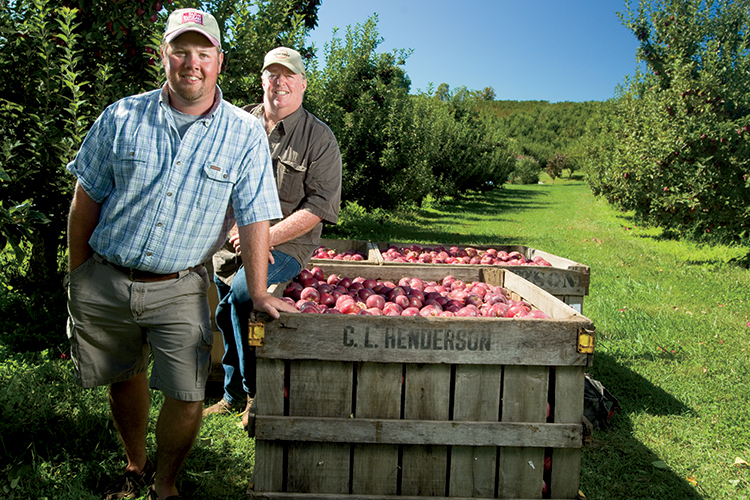

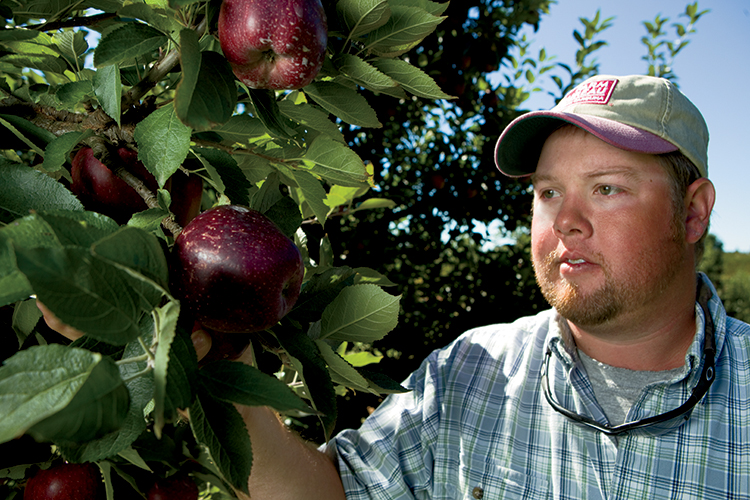
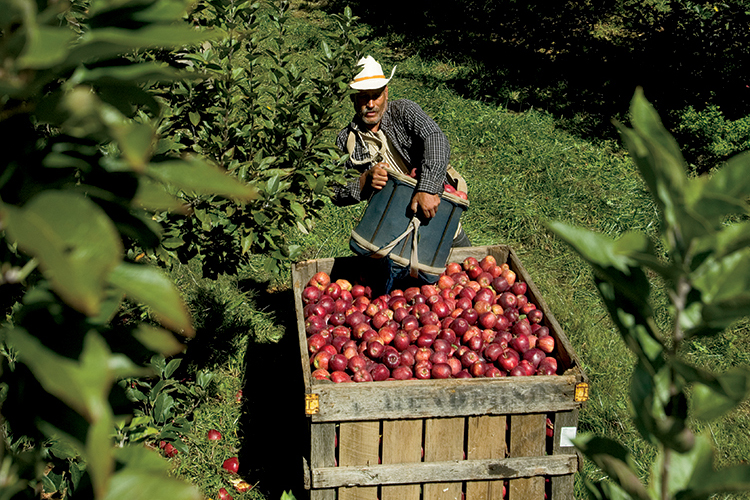
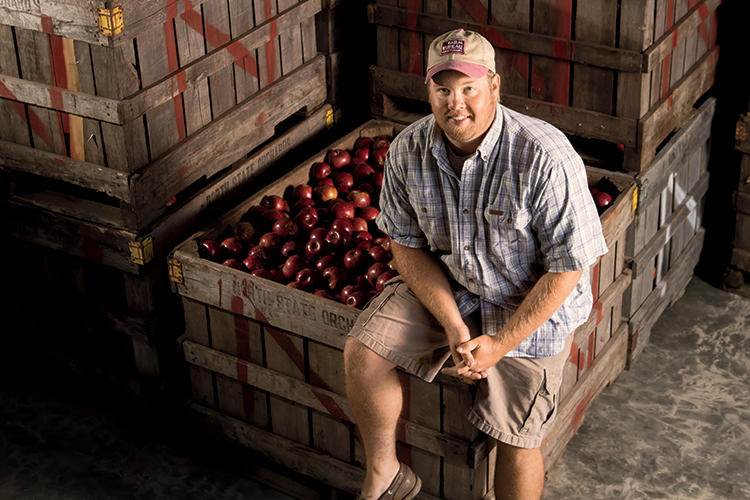
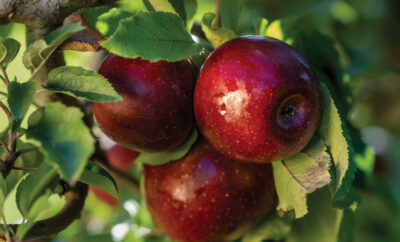
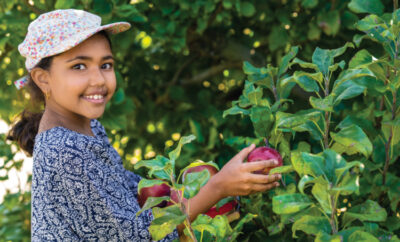
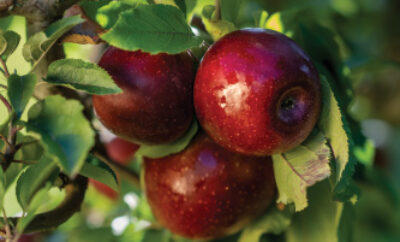
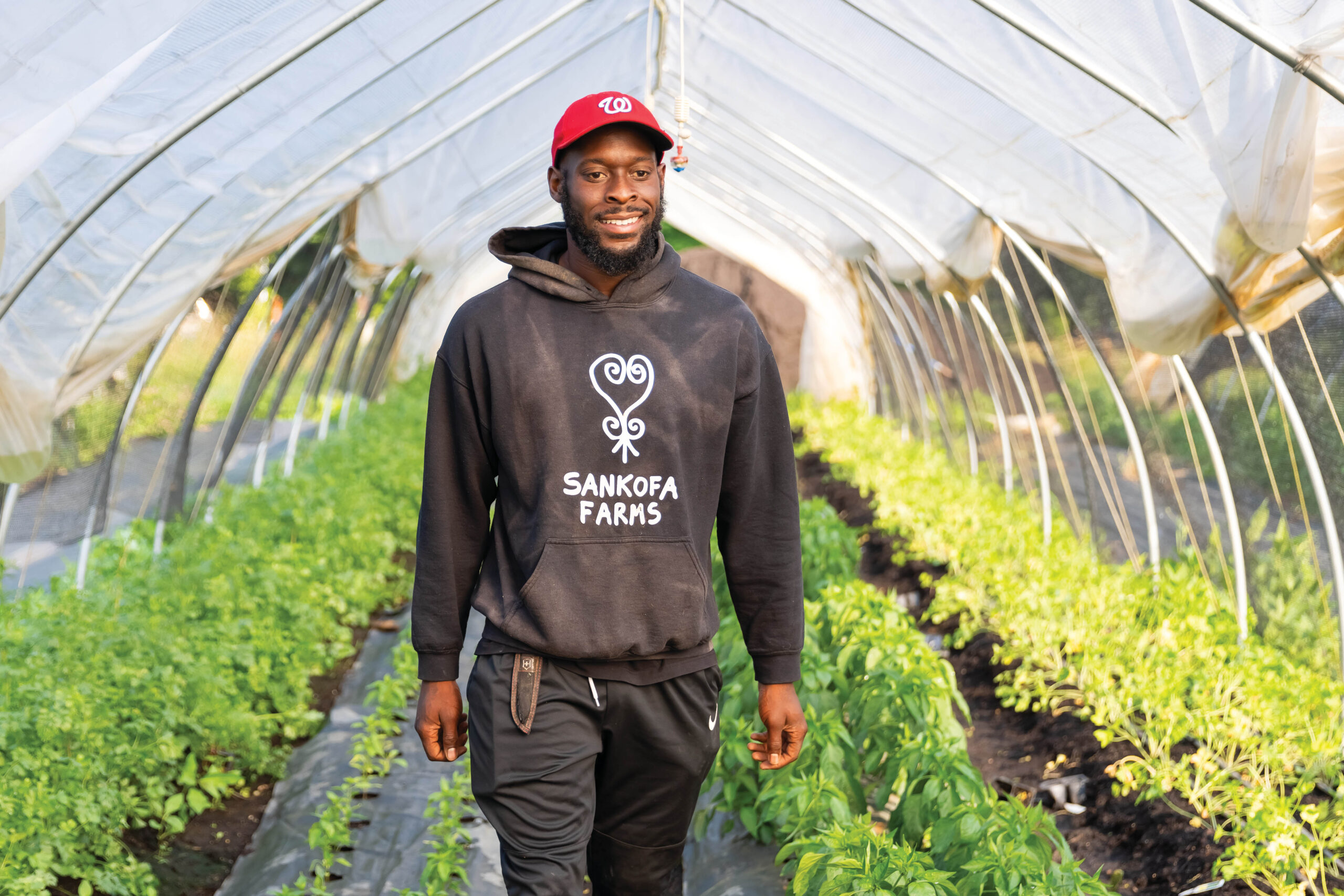
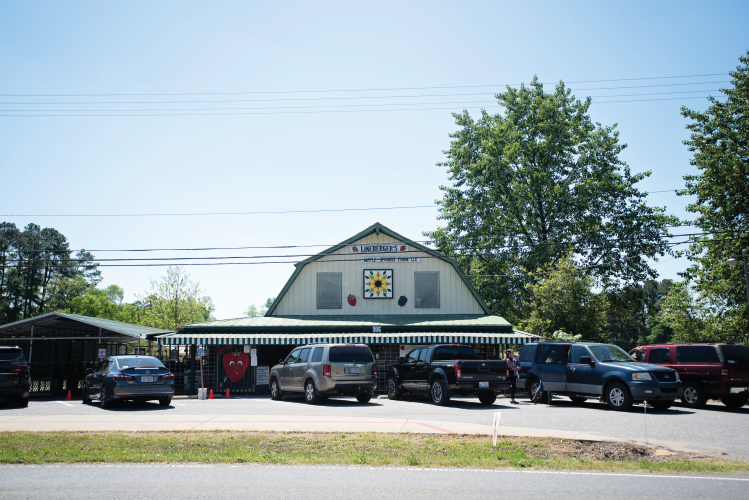
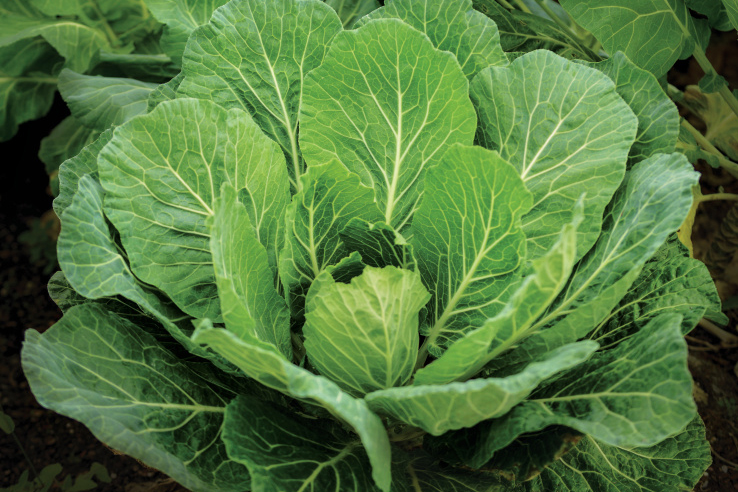
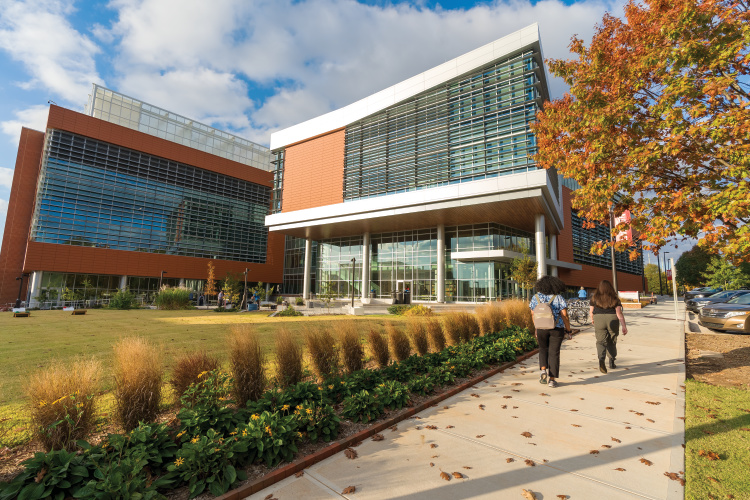

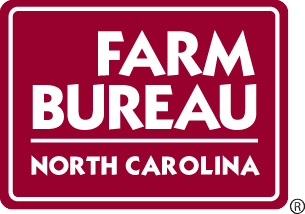
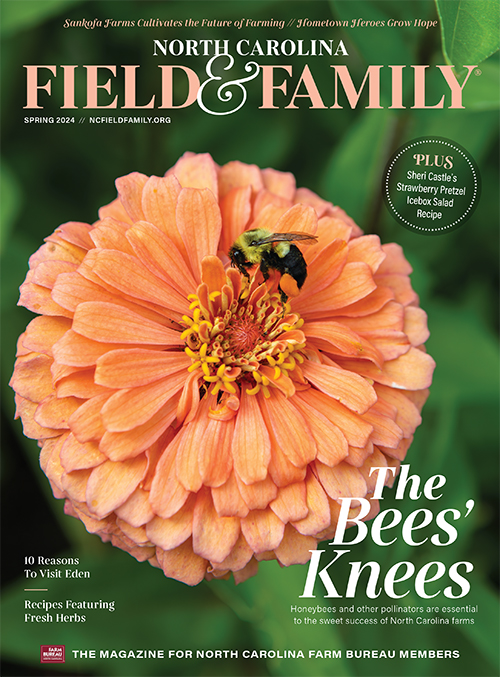 North Carolina Field and Family magazine highlights farms and foods, events and attractions, and interesting people and places throughout the state.
North Carolina Field and Family magazine highlights farms and foods, events and attractions, and interesting people and places throughout the state.
Daniel Croom
November 27, 2016 at 8:16 am
I’m looking for a field grown stayman apple tree for sale
Can you give any advise where I can purchase ?
Thank you